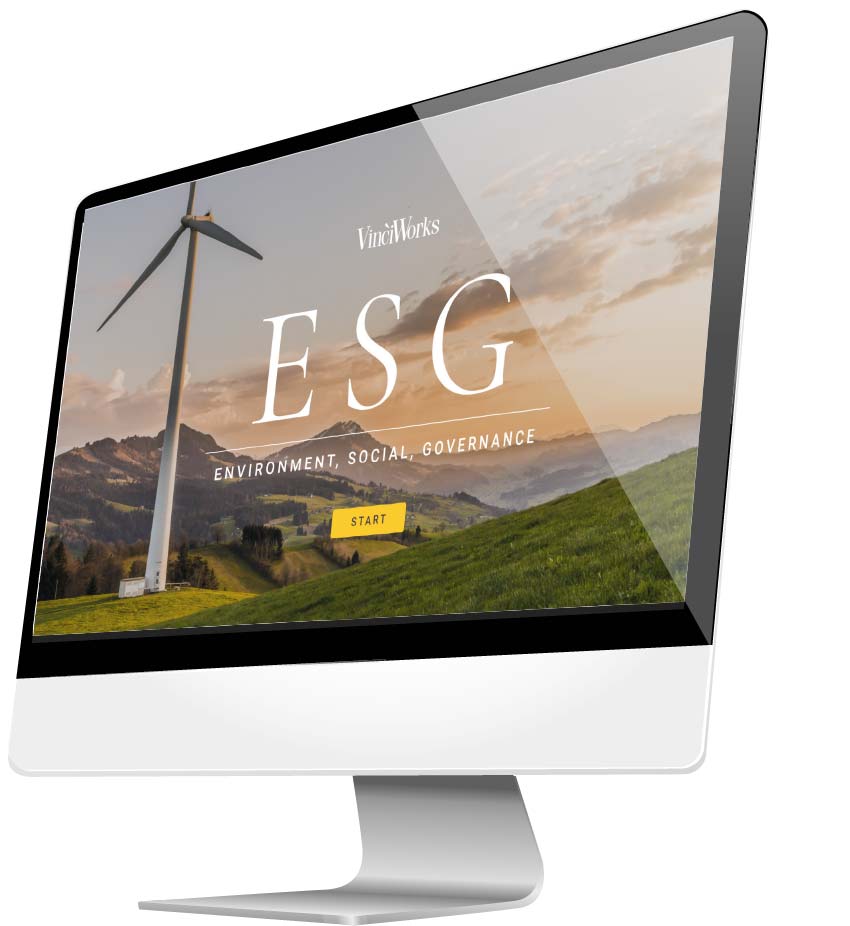
Over the last decade, ESG (environmental, social, and governance) has become increasingly relevant for investors. Today, more than 300 institutional investors representing over $80 trillion assets-under-management use ESG standards to inform their decision making. ESG issues surged to the forefront with the COVID-19 pandemic, which drew attention to the fact that these risks are becoming reality. Whether pandemics, social movements, or extreme weather from climate change, these trends pose both risks and opportunities for investors. By communicating how these risks are managed, companies can show investors how they are successfully navigating a changing world.
Why is ESG information relevant for investors?
ESG complements financial information for a more holistic view of the company, and the risks and opportunities it faces. ESG risks vary widely, but all are becoming more relevant, such as physical risk from climate change (“E”), reputational risk from social injustice (“S”), and regulatory risk from corruption (“G”). These risks can impact a company’s financial performance and are thus of interest to many investors.
But ESG can also reveal opportunities. For example, net zero transition plans will require new business models and services. In his 2022 letter to CEOs, BlackRock chairman Larry Fink wrote, “Every company and every industry will be transformed by the transition to a net zero world. The question is, will you lead, or will you be led?” Investors may look to ESG information to identify those leaders.
How do investors expect ESG data to be reported? What should be included?
Previously, sustainability reporting was largely qualitative. This made it difficult for investors to compare and analyse. Now, as the tools and methods mature, ESG reporting is more quantitative and supported by qualitative analysis. For example, companies should report their greenhouse gas emissions (“E”) accompanied by a savvy plan to reduce emissions with reasonable targets.
This information is often reported according to a recognized standard, which makes it easy for investors to compare companies. While no one standard is required, the two most common are the Global Reporting Initiative (GRI) and the Sustainable Accounting Standards Board (SASB) (you can read more about selecting the right standard here).
Regardless of the standard used, the ESG information presented should be relevant to the business. When reporting to investors, companies should demonstrate their understanding of ESG issues material to long-term value creation. You can explore ESG reporting best practices here.
How do investors compare companies against each other?
ESG comparison looks a lot like conventional financial analysis, relying on company reports, news, and rating agencies. Investors may look to ESG rating agencies to quickly understand a company’s ESG performance. While there are dozens of rating agencies, the largest include MSCI, Bloomberg, S&P SAM (DJSI), and Morningstar Sustainalytics.
Some ratings are ESG performance-based, and others are risk-based. In general, companies are assigned a score using company publications in the context of regulatory and market news. Scoring starts with an analysis of the key issues identified for the industry. A low score indicates that a company is heavily exposed but is not managing the risk. A high score indicates that the company is aggressively addressing the risk. Scores can be numeric (e.g., DJSI scores 0-100) or alphabetic (e.g., MSCI scores CCC-AAA).
ESG ratings continue to mature but may be seen as unreliable because of subjectivity and a lack of transparency in data sourcing. As such, ESG ratings may be the first step in investment screening before further analysis of companies.
For smaller companies without an ESG rating, using a recognized standard will make reporting accessible and useful to investors.
What are the benefits of ESG when seeking investment?
By supplementing financial reports with ESG data, companies demonstrate their understanding of the business in an evolving world. ESG reporting is an opportunity to show investors risk mitigation and strategic thinking not represented by the bottom line alone. As investors navigate this transition, providing clear, relevant information can set a company apart as an attractive investment opportunity.
VinciWorks’ ESG training suite
A core part of any ESG initiative is employee training. Training all staff transforms ESG from an isolated activity undertaken by a small group of staff into a process that is deeply embedded into an organisation’s culture. Further, ESG rating agencies and reporting frameworks use training as a measure of ESG effectiveness.
VinciWorks’ ESG awareness training is designed to give your employees an overview of what ESG means, why it’s important, and what you can do to help your company achieve its ESG goals. While our micro-course gives an introduction to ESG, our in-depth course goes into further detail about each employee’s personal role and responsibilities in their company’s ESG initiatives.
Want to know more about how we can help you with your ESG programme? Complete the short form below and we’ll be in touch.









